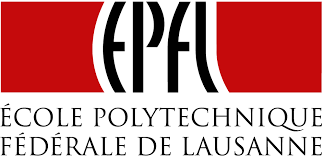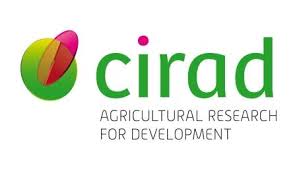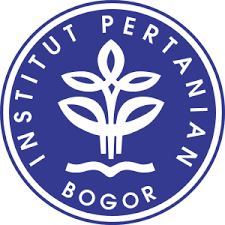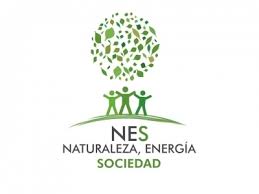
Country situation
Colombia is the main oil palm producer in Latin America and the fourth largest producer country worldwide. Oil palm plantations are reported in 124 municipalities across 20 departments. According to the UN’s Food and Agriculture Organization (FAO), the country has some of the greatest potential for expanding agriculture in the region. This can be seen in the Llanos Orientales region where, in the last two decades, oil palm has expanded greatly; 40% of the total planted areas are located there.
The OPAL project is underway in two production regions: Llanos Orientales in the east, and the Caribbean plains in the north. In the Llanos Orientales, the departments of Meta and Casanare together represent over 40% of the national oil palm area. In the Caribbean region, the departments of Magdalena and Cesar represent 26% of the total area planted.
In the region of Llanos Orientales, the continued expansion of oil palm is generating pressure on the savannas. In the Caribbean region, smallholders’ production share is becoming increasingly important, with inclusive business models being promoted by mills.
Goal
The OPAL project is contributing to the promotion of knowledge, understanding and dialogue, which will help make the oil palm sector a leader in good agricultural and environmental practices, like a commitment to protect natural ecosystems and avoid deforestation. Through its participative model, OPAL’s team in Colombia is working with key players in the country’s oil palm industry to describe its dynamics and the interactions between them, as well as their relationship with natural resources in specific areas.
The main objectives are:
- To understand how relations work between ecological systems and oil palm landscapes.
- To promote dialogue among actors who compete for resources in the regions where the oil palm industry is located, to properly identify challenges for the future and how to solve them.
- To improve and strengthen best agricultural and environmental practices in the oil palm sector.
- To secure detailed knowledge about the dynamics that shape the oil palm industry in Colombia.
- To use role playing games as a tool to simulate and build future scenarios in the Llanos Orientales and Caribbean regions.
People
OPAL is executed in Colombia through an alliance between WWF Colombia, the consulting firm NES Naturaleza and Javeriana University. People involved in the project are:
- Alejandra Rueda Zárate (NES NATURALEZA Founder)
- Ana Maria Galvan (NES NATURALEZA Project Leader)
- Andres Etter (Director of Ecology and Territory Investigation Group, Department of Ecology and Territory, Javeriana University)
- Daniel Castillo (Director of Research, Research Vice-Chancellery, Javeriana University)
- María Fernanda Pereira (Research Assistant, Javeriana University)
- Camila Cammaert (WWF Commodities Policy Specialist)
- Carolina Escallón (WWF Communication Specialist)
- Mariana Tafur (WWF Strengthening Dialogue with Productive Sectors Specialist)
Current activities
Several actors with different roles and positions have been invited to develop the ‘PARDI’ model, revealing problems, actors, resources, dynamics and interactions. Three workshops, 12 individual interviews and 2 group interviews took place, with 17 participants representing: investors; producers (Palmera Central and Agropecuaria Santa Maria); environmental research organizations (Colombian Corporation for Agricultural Research (Corpoica), Instituto Alexander von Humboldt, Cenipalma, Unidad de Planificación Rural Agropecuaria (UPRA), and Global Environment Facility (GEF); and biodiesel producers (Fideocombustibles).
The process resulted in three versions of the PARDI model. One version was validated through interviews; another was expanded on by other key industry players, including Fedepalma and Biocosta.
Fedepalma is the National Federation of Oil Palm Growers, which groups and represents growers and producers of palm oil. Biocosta is an international trading company founded in 2007 by six production plants located in the departments of Magdalena and Cesar on the Colombian Caribbean coast, making up almost 50% of the Caribbean region´s production of palm oil.
As part of the PARDI model, a frequency analysis was carried out, taking into account all actors’ contributions to define what more than 5 participants agreed on. The process revealed that key challenges included a lack of effective communication between national-level actors, and a lack of information to inform decisions. It was also possible to identify that interactions with natural resources are directly linked to local actors; they are the ones who plan how to transform the landscape and manage natural resources, whether or not information is available. Water was recognized as the most important natural resource for planning. Next steps are to communicate these results to participants and to build a role play game based on the PARDI model.
Publications
- Banning palm oil blocks good practices, by Alejandra Rueda and Jaboury Ghazoul (ETH Zukunftsblog, October 2017)
- Reporte de estado actual Llanos Orientales, tercer reporte – OPAL Colombia, by NES Naturaleza (August 2016)
- Oil palm sector in Colombia, second report – OPAL Colombia, by NES Naturaleza (June 2016)
- Situational analysis of the oil palm sector in Colombia, by NES Naturaleza (October 2015) – Spanish version
- Declining palm oil prices: Good news and bad news for smallholders, by Jaboury Ghazoul and others (Mongabay, March 2015)
Related topics
Building the PARDI model (October 2016)
In 2016, the OPAL Colombian team began building the PARDI model. Two workshops and 10 individual and pair interviews were organized to validate the model with all involved actors: investors, producers (Palmera Central and Agropecuaria Santa Maria), public and private environmental research organizations (Corporación Colombiana de Investigación (Corpoica); Instituto Alexander von Humboldt; Cenipalma and Unidad de Planificación Rural Agropecuaria (UPRA); biodiesel producers (Fideocombustibles); Global Environment Facility (GEF); NES Naturaleza; and Javeriana University.
News item – Field work in Colombia by OPAL Switzerland’s EPFL team (August 2016)
PARDI workshop report – Llanos region (March 2016)
The first OPAL Colombia workshop was held in Bogotá, in conjunction with Javeriana University, WWF Colombia and NES Naturaleza. Participating were 14 stakeholders from 11 different public and private institutions with different roles and positions relating to oil palm. The main objective of the workshop was to contribute to the understanding of resource dynamics in the Orinoquía region. The participation of interested parties was very valuable to determine the main aspects that might influence the future expansion of oil palm in the territory. The participants discussed aspects related to integral, responsible planning of the oil palm ecosystem. ‘Problem Tree’ analysis was useful to identify the contextual elements of ecosystem territory services, as well as the relationships and interactions between actors and relevant resources in the oil palm landscape. The main opportunity for improvement, as highlighted by the group, was a lack of comprehensive and responsible planning for the oil palm socio-ecosystem in Orinoquía.












